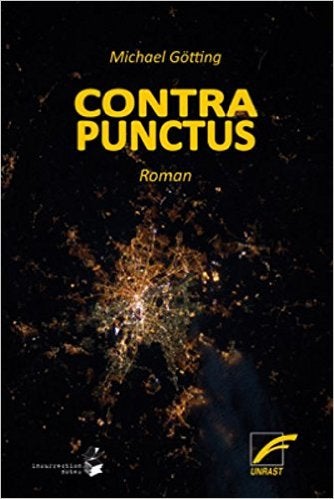
Excerpts from Contrapunctus will be read in both English and German. Afterwards, the floor will be opened to questions. The discussion will be held in English. All are welcome, and knowledge of German isn't necessary.
Contrapunctus
... is the polyphonic and wild journey through the lives of its Afro-German protagonists and the collective consciousness of the Berlin Republic.
The novel is an uncompromising portrayal of Indigo, Rutha-Pong, Habibi and Olaudah, four Black Germans who are struggling with the remainders of the country’s colonial past, their relationships and the racist tendencies within the society.
Since her childhood, Indigo suffers from a mysterious illness that the doctors are not able to diagnose. When she faints, her conscience gets carried away by images of the collective memory and she finds herself in a world where traumatic experiences of the past mix with her present life. For Rutha-Pong, a difficult decision is to be made: Is she going to take her son’s father Olaudah back into her life, after he served his six year sentence, or will she decide in favor of Habibi, her boyfriend and her son’s foster father? Habibi has a special gift – his deep sense of the interconnectedness of all human beings.
The structure of the novel goes back to the musical concept of the counterpoint. Johann Sebastian Bach’s “The Art of Fugue” plays an important role in the story. The topics of powerlessness, captivity, immigration, heimat, belonging and interconnectedness are the basis on which the voices develop. They recur in variations as the characters deal with them, they connect in periodic but ever differing patterns.